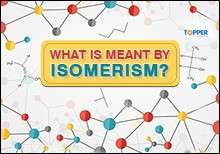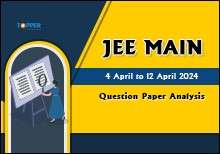How to Write Perfect Answers in CBSE Class 10 Social Science exam?

Be confident and score good marks by writing suitable answers in your CBSE Class 10 Social Science exam 2020.
By Topperlearning Expert 04th Feb, 2020 | 05:11 pm
Share‘The first clear expression of nationalism came with the French Revolution in 1789.’ Examine the statement.
This five-mark question which featured in the Central Board of Secondary Education (CBSE) 2017 board paper left many students sweating that year. Several students did not know what to write and were confused as to how to write the answer. The question was taken from the History chapter ‘The Rise of Nationalism in Europe’. This was perhaps one of the toughest questions in the paper that year. Before we answer this question, let us take a look at the type of questions asked from past years’ papers in the CBSE Class 10 Social Science paper.
General Typology and Pattern of the Social Science Paper
- CBSE prepares the board question paper which comprises questions of three difficulty levels—easy, average and hard.
- While some questions are memory-based, others are understanding- and application-based. The Board lays emphasis not only on quantitative learning but also on qualitative learning. It tests students on their analytical skills.
- In CBSE, Social Science consists of four subjects—History, Civics, Geography and Economics. Students are assessed on remembering, understanding, analytical and higher-order thinking skills.
- Refer to the CBSE Class 10 social science syllabus to understand the types of chapters.
At times, students know the answer but are not able to coherently put down their answers. This results in deduction of marks. Let us look at how an ideal answer should be written.
Structure of an Answer
An ideal answer consists of three parts—introduction, main part and conclusion. It‘s important to know how to frame your answer.
Introduction
- Students should provide a brief and suitable introduction. It is suggested that students provide some relevant background information of the answer that they will be writing.
- Since you have to limit a 3-mark question to about 80 words and a 5-mark question to about 100 words, the introduction should not be more than 3-4 sentences.
- The introduction gives examiners the first impression of the arguments of an answer. So, your introduction should be simple and to the point.
Main Part
This is the most important section as you will get most of the marks based on the facts or events that you write in this section.
Conclusion
- Last, but not the least, is the Conclusion.
- In the conclusion, you are suggested to write about the facts that you derive at after writing the main part.
- If the question is not analytical based, you may provide a brief summary of the main part of the answer in this section.
We will now answer a question each from History, Civics, Geography and Economics based on the above suggested structure.
History
The History syllabus in CBSE Class 10 Social Science is based on several themes which deal with the concept of nationalism and its impact, globalisation, industrialisation and the impact of the Print Revolution.
-
Question
‘The first clear expression of nationalism came with the French Revolution in 1789.’ Examine the statement.
(5M) (2017)
-
Answer
Introduction
The feeling of nationalism emerged in France after the French Revolution in 1789 when revolutionaries overthrew the monarchy and introduced various measures and practices which could create a sense of collective identity amongst the French people.
Main Part
These measures were
- The ideas of ‘la patrie’ (the fatherland) and ‘le citoyen’ (the citizen) were introduced which emphasised the notion of a community enjoying equal rights under a constitution.
- A new French flag, the tricolour, replaced the former royal standard.
- The Estates General was elected by the body of active citizens and was renamed the National Assembly.
- New hymns were composed, oaths were taken and martyrs were celebrated in the name of the nation.
- A centralised administrative system was put in place and it formulated uniform laws for all citizens within its territory. Internal customs duties and dues were abolished, and a uniform system of weights and measures was adopted.
- Regional languages were discouraged, and French became the common language of the nation.
Conclusion
Thus, we see that through the above measures, the French revolutionaries were able to instil a sense of belonging among the people. People now started pledging loyalty to their nation and not to a king.
Civics
The Civics syllabus in CBSE Class 10 covers a wide range of topics right from contemporary issues, understanding of the democratic systems and their working, the role of political parties in a democracy and the importance of power sharing in a country. Let us now attempt a Board question in Civics.
-
Question
‘Secularism is not an ideology of some political parties or persons, but it is one of the foundations of our country.’ Examine the statement. (3M) (2018)
-
Answer
Introduction
Secularism means the separation of religion from politics. In India, it means the freedom of an individual to practise and propagate his/her own religion.
Main Part
Secularism is one of the foundations of our country. This is because
- Secularism guarantees the right to freedom of religion to all and allows people to profess and practise their religion.
- A secular state does not favour any community on the basis of religion.
- However, in India, the principle of secularism is not absolute. The government can outlaw any religious practice if it violates basic human rights. For example, the government has abolished sati and untouchability to reform Hindu society.
Conclusion
Secularism is the cornerstone of Indian democracy because it gives rights and freedom to people to combat the communal forces in the country. The concept of secularism cannot be appropriated by any political party or a person alone.
Geography
Geography in CBSE Class 10 Social Science mainly focuses on the availability of minerals in the country, the role of manufacturing and the role of transport in the development of the economy and the conservation of natural resources.
The below question was asked in the 2019 board paper.
-
Question
‘Why should we use natural resources properly and judiciously? Explain your views.’ (3M) (2019)
This is an analytical question. The question may look easy while reading, but when we actually start to write, we may get confused.
Below is the answer in the structure which is similar to that discussed above.
-
Answer
Introduction
Natural resources lead to the development of a country’s economy. Humans are using natural resources to enhance the development of the country’s economy. Natural resources are thus fast depleting.
Main Part
- We should use natural resources properly and judiciously because they are limited in nature. We need to preserve them for the use of future generations.
- Most natural resources are non-renewable. This means that once exhausted, they will take geological ages to replenish.
- Unlimited use of natural resources such as coal and petroleum is the main cause of global warming and the consequent climatic changes.
Conclusion
We should judiciously use natural resources as they are limited, and their reckless exploitation results in major climatic changes.
Economics
The Economics syllabus for CBSE Class 10 deals with various topics such as human development and achievement of goals, sectors of the economy, importance of money and the need for credit and the study of consumer rights.
The below question was asked in the 2018 board paper.
-
Question
‘How has foreign trade been integrating markets of different countries? Explain with examples.’ (5M) (2018)
This is not a straightforward question. While answering this question, students need to understand the role of foreign trade in integrating markets of different countries.
Structure your answer as shown below when attempting this or similar questions.
-
Answer
Introduction
The process of globalisation has enabled the opening up of the economy, thus resulting in foreign trade. It is foreign trade that has been the main channel connecting markets of different countries.
Main Part
Foreign trade has been integrating markets of different countries in the following ways:
- Foreign trade creates opportunities for producers to reach beyond domestic markets.
- It allows producers to cross domestic boundaries in search for cheaper raw materials.
- Manufactured goods and services can now be sold in various markets of different countries.
- Consumers now have a wide range of products from different countries to choose from. This increases competition among producers across countries.
- For example, Volkswagen, a German automobile company, is the largest automaker in Germany and the second largest automaker in the world. It came to India in 2007 and recorded sales of 32,627 vehicles in 2010. Volkswagen, by launching various models of cars in India, has broadened the choice of people buying a car.
Conclusion
Thus, we can conclude that the policy of globalisation has been a facilitating factor in encouraging foreign trade and has thereby been instrumental in integrating markets of countries.
If you can write answers as we’ve discussed, you will be able to impress the examiners and attain a perfect score. However, to write such an answer, you need to have a thorough understanding of the concepts. Understanding the concepts when revising the chapters is of utmost importance. Also practice makes a man perfect! Practice as much as you can with TopperLearnings sample papers and study the most important questions for you to ace the CBSE Class 10 board exams.
Important Resources
- Education Franchisee opportunity
- NCERT Solution
- CBSE Class 9 Mathematics
- NCERT Solutions for class 10 Science
- Sample Papers
- CBSE Class 9 Science
- NCERT Solutions for class 10 Maths
- Revision Notes
- CBSE Class 10 Hindi
- CBSE Class 10 English
- CBSE Class 10 English
- CBSE Class 10 Social Studies
- CBSE Class 10 Science
- CBSE Class 10 Mathematics
- Career In Science After 10
- Career In Commerce After 10
- Career In Humanities/Arts After 10
- NCERT Solutions for Class 10
- NCERT Solutions for Class 11
- Business Studies Class 12 CBSE project





